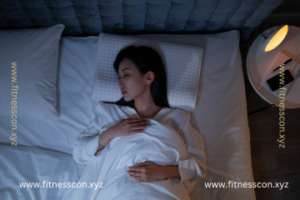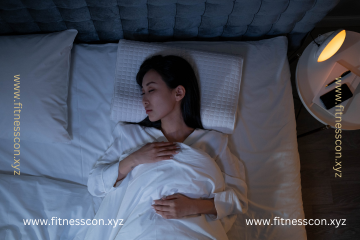Getting a good night’s sleep is essential for overall health and well-being. However, many people struggle with achieving quality sleep. Here are some science-backed tips to help you rest easy and wake up refreshed.
Create a Sleep-Conducive Environment
- Block Out Light: Excess light can disrupt your circadian rhythm, making it harder to fall asleep. Use blackout curtains or a sleep mask to create a dark environment conducive to sleep. Reducing light exposure in the evening helps your body produce melatonin, a hormone that promotes sleep.
- Minimize Noise: Noise can significantly impact your sleep quality. If you can’t eliminate noise, consider using earplugs, a white noise machine, or a fan to drown out disruptive sounds. Creating a quiet sleeping environment can help you stay asleep longer.
- Set the Right Temperature: A cool room temperature, ideally between 65 to 68 degrees Fahrenheit, can enhance your sleep. Adjust your thermostat or use fans and bedding to maintain a comfortable sleep environment.
Develop a Consistent Sleep Schedule

- Stick to a Routine: Going to bed and waking up at the same time every day, even on weekends, helps regulate your body’s internal clock. This consistency makes it easier to fall asleep and wake up naturally.
- Limit Naps: While naps can be refreshing, they can also disrupt your sleep schedule if taken too late in the day or for too long. Aim for short naps (about 20 minutes) in the early afternoon to avoid interfering with nighttime sleep.
Prepare Your Body and Mind for Sleep
- Relax Before Bed: Establish a pre-sleep routine to wind down. Engage in relaxing activities like reading, listening to soothing music, or practicing gentle yoga. Avoid stimulating activities and bright screens at least an hour before bed.
- Manage Stress and Anxiety: Stress and anxiety can keep your mind active, making it difficult to fall asleep. Techniques like mindfulness meditation, deep breathing exercises, and progressive muscle relaxation can help calm your mind and prepare you for sleep.
Optimize Your Daytime Habits
- Exercise Regularly: Regular physical activity can promote better sleep. Aim for at least 20-30 minutes of moderate exercise most days of the week. However, avoid vigorous exercise close to bedtime as it can interfere with your ability to fall asleep.
- Get Natural Light Exposure: Exposure to natural light during the day, especially in the morning, helps regulate your sleep-wake cycle. Spend time outdoors or open your blinds to let in sunlight.
- Limit Stimulants and Alcohol: Caffeine and nicotine are stimulants that can disrupt your sleep. Avoid consuming them in the afternoon and evening. While alcohol might make you feel drowsy initially, it can interfere with sleep quality and cause disruptions during the night.
Enhance Your Sleeping Space
- Choose the Right Mattress and Pillow: A comfortable mattress and supportive pillow are crucial for good sleep. Ensure your bed provides adequate support and replace your mattress every 5-7 years and pillows annually.
- Keep Your Bedroom for Sleep: Reserve your bedroom for sleep and intimacy only. Avoid working, watching TV, or using electronic devices in bed. This helps reinforce the association between your bedroom and sleep.
Nutrition and Hydration
- Eat Light in the Evening: Heavy meals late at night can disrupt your sleep. Try to finish eating at least 2-3 hours before bedtime. If you’re hungry closer to bedtime, opt for a light snack that promotes sleep, such as a small serving of yogurt or a banana.
- Stay Hydrated, But Not Too Much: Drink enough water throughout the day to stay hydrated but limit fluids in the evening to prevent frequent trips to the bathroom at night.
Also Read: Best Stress Management Tips for a Calmer You
Conclusion
By incorporating these tips into your daily routine, you can improve your sleep quality and overall health. Remember, consistency is key. Give your body time to adjust to these changes, and soon you’ll be enjoying better sleep and waking up feeling refreshed and energized.

